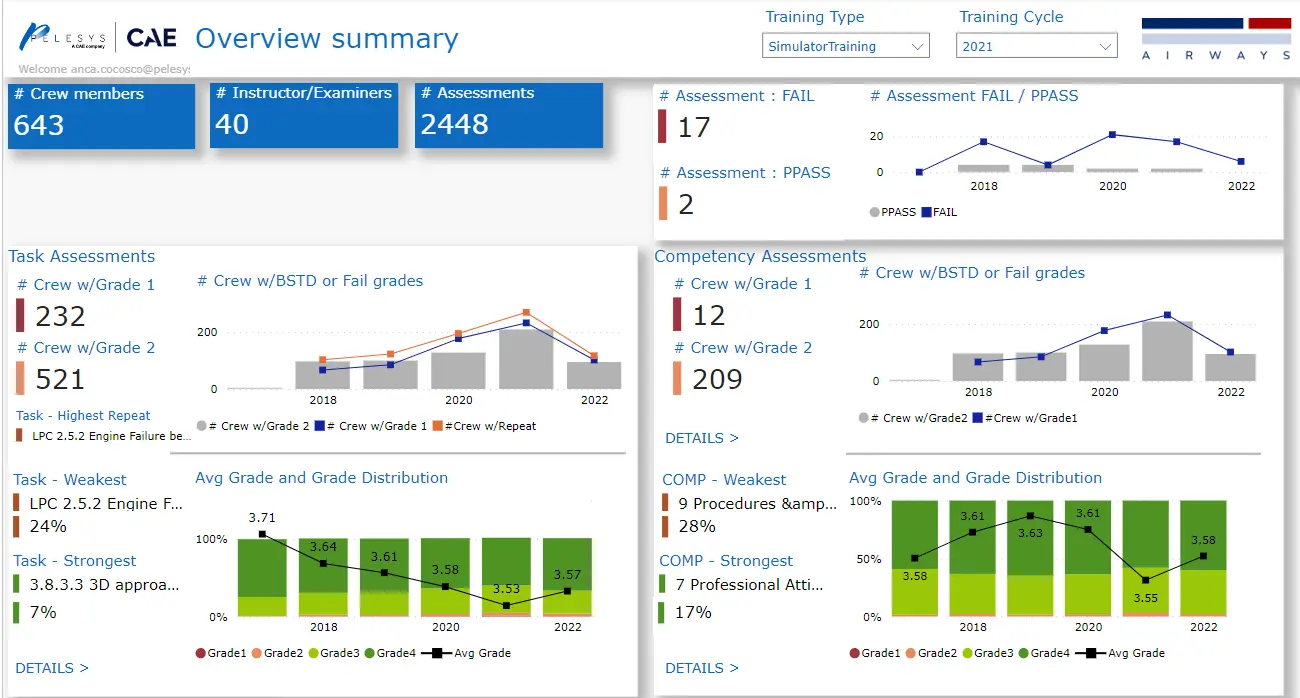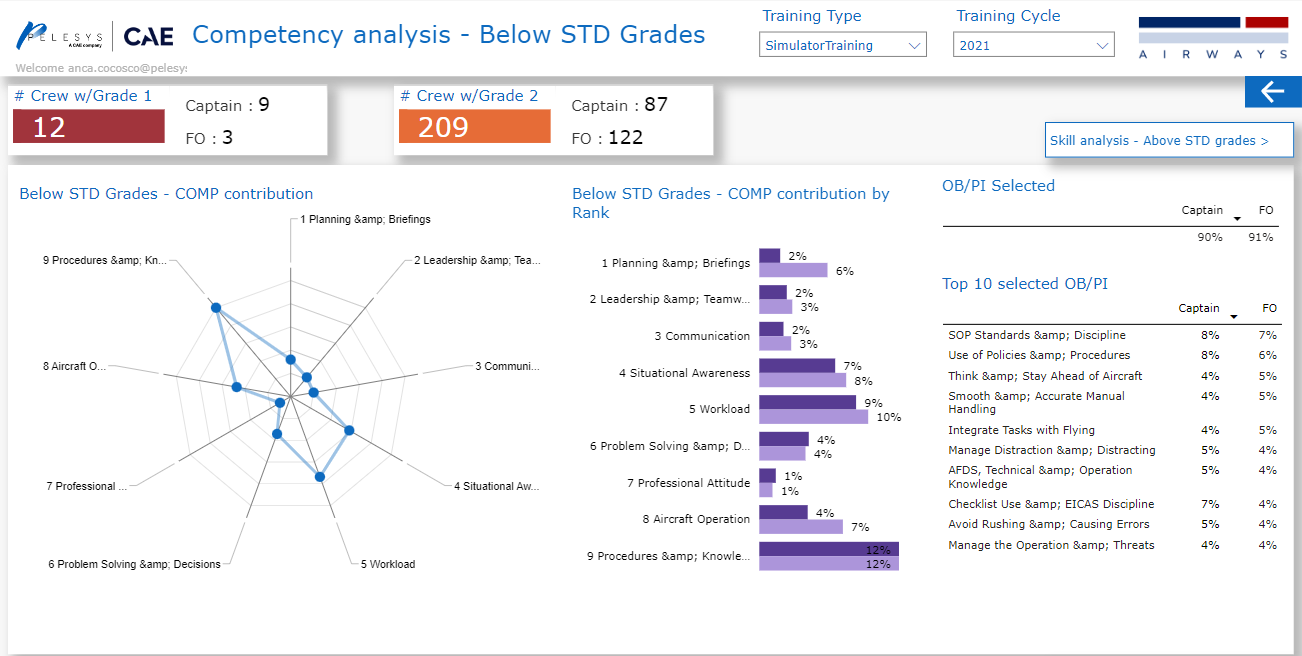


CAE Pelesys is pleased to release the new Central Analytics and Reporting (CAR) tool. This feature serves to centralize analytics and reporting across all elements of the CAE Pelesys TMDS, providing a common portal for generating analyses and creating regulatory and internal company reports as well as virtual training records.
The new Central Analytics and Reporting (CAR) tool provides a way for each operator to develop and maintain company-specific analytics and reports tailored to the operation and the requirements of corporate decision makers and users, as well as regulatory authorities.
This tool has become indispensable in today’s training and compliance environment. With the development and growth of Competency Based Training and Assessment regulations, mandated by ICAO, airlines across the globe are using this new and exciting training concept to better understand the human as well as the technical factors that go into both day-to-day operations, and the handling of abnormal and emergency procedures.
In the past, regulators took the approach of “proving competency” with an assumption that crews needed to demonstrate technical proficiency in aircraft systems normal and abnormal operation, ensuring that procedures are followed as recommended by Original Equipment Manufacturers and mandated by Standard Operating Procedures. However, accident statistics have shown that many of the accidents in todays highly-reliable and automated aircraft implicate how crews communicate, apply knowledge, deal with surprise and startle, manage workload, solve problems, make decisions, and maintain situation awareness while demonstrating personal reliability and resilience.
Evaluation of competency assumes that the flight crew are competent to operate the aircraft, having been initially trained and released for line operations. The focus now is to challenge these competent crews with situations that require skill in one or a combination of these competencies.
Once this analysis and evaluation has taken place, training can be tailored toward fine tuning behaviours, and skills to more effectively deal with rapid onset, rapidly changing and often uncertain events that lead to non-normal operations. This tailoring could not be done without data.

Data analysis in CBTA training environments provides insight into which competencies are demonstrated to an acceptable standard, and which ones need to be addressed in training to bring them to an acceptable level. As well, the analysis of best practices informs the training department about knowledge, skills and attitudes that add a higher level of safety to all operations.
Analysis also provides insight into instructor delivery of the training, and provides a means to analyze instructor standardization levels, thereby providing insights into where standardization is serving training well and where non-standard assessments are risking an unacceptable degradation of safety, and which serve to skew the data being gathered by the instructors to use for program development and maintenance.
Evidence Based Training is gaining a high level of interest and acceptance by both operators and regulators. The Advanced Qualification Program, widely used in the United States, has been gathering training data for over 35 years and has contributed to the great safety record of U.S. operators. EBT takes this to another level, offering unique opportunities for instructors to take a more active role in the training through In-Seat-Instruction and the ability to have options for events that ensure not everything that is going to unfold in a training session is already well known to the flight crew population, thus adding the element of surprise and the analysis of how crews handle the unexpected.
A CAE Pelesys airline customer can use ETR, the electronic training and assessment tool, to gather grading data in real time, to remain heads up and watch for trends that are revealed in multiple scenarios which can point to best practices or to the need to focus on ways information was managed and decisions taken in a high pressure, rapidly changing environment.
The CAR tool also creates reports required for regulators, and for internal use, which can be tailored to the specific airline. It is a repository for all training records, through the virtual training record tool. Reports can be designed using the powerful analytical and reporting tools embedded in CAR.
We are very excited to be part of this new regime of training, and to be able to advise and guide operators on the best ways to use data, to manage training records, and to create and manage training courses and assessments.
CAR will be able to analyze learning via the Learning Management System, gathering and reporting on how long it takes to go through various pages of a computer-based training module, or to evaluate how long trainees spend on slides, whether they go back multiple times to view a specific slide, for example, thereby providing insight into possible problems with content. Exam generated from the Exam Generation System report data on grades, and can analyze subjects of concern and measure progress across a broad range of experience.
We believe that flight crews, after being challenged during training to apply skills that are not just mechanical in nature, will be more confident, more prepared, and better able to cope with what can be very intense, sometimes life-threatening events, which they bear the responsibility to solve safely.
The goal is to uncover truth about root causes of events that can lead to accidents and incidents, to drive down those statistics from their already-low level, and to empower flight crews by the provision of soft skills meant to take advantage of human ingenuity and problem solving to provide the best outcomes.